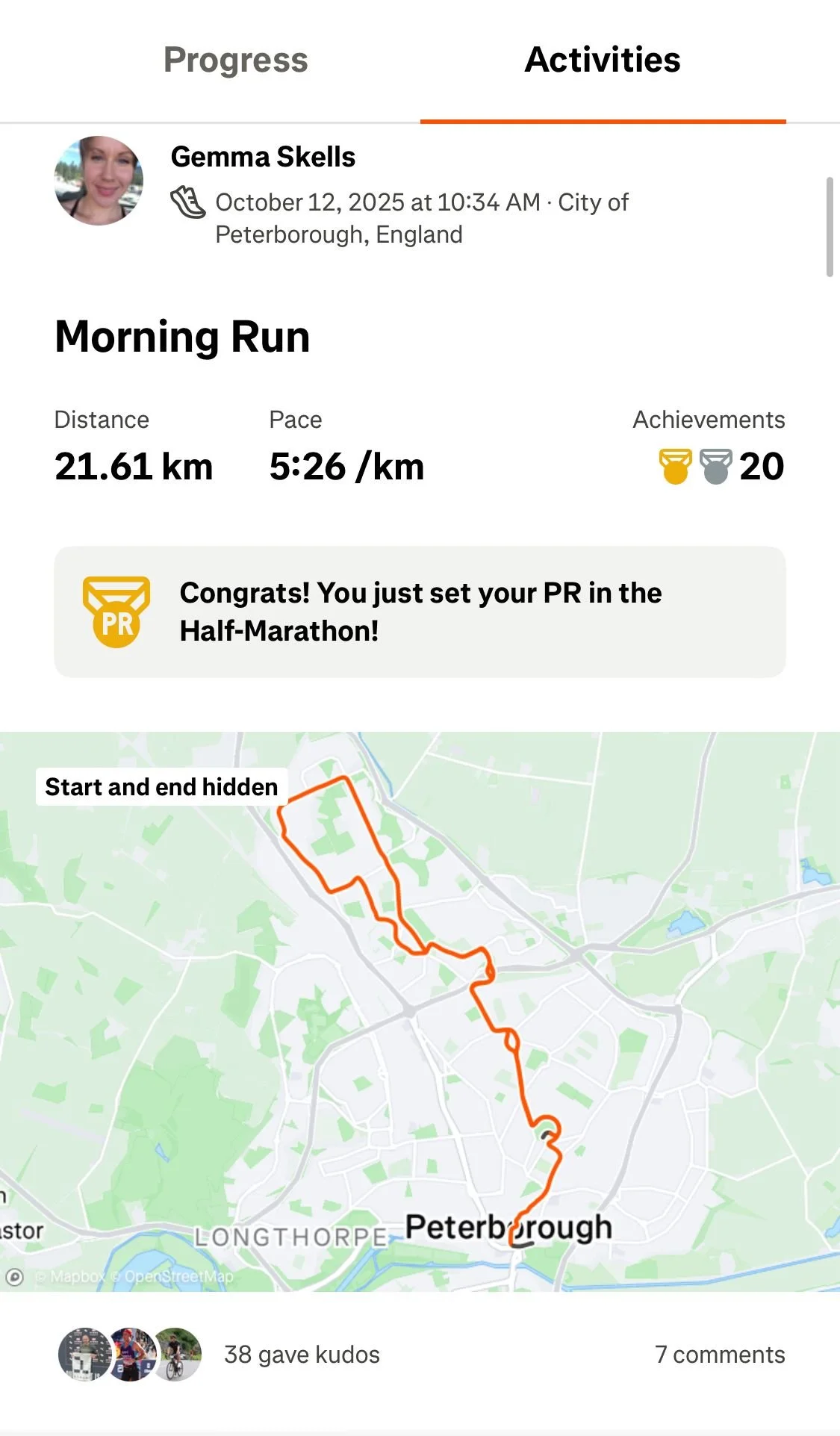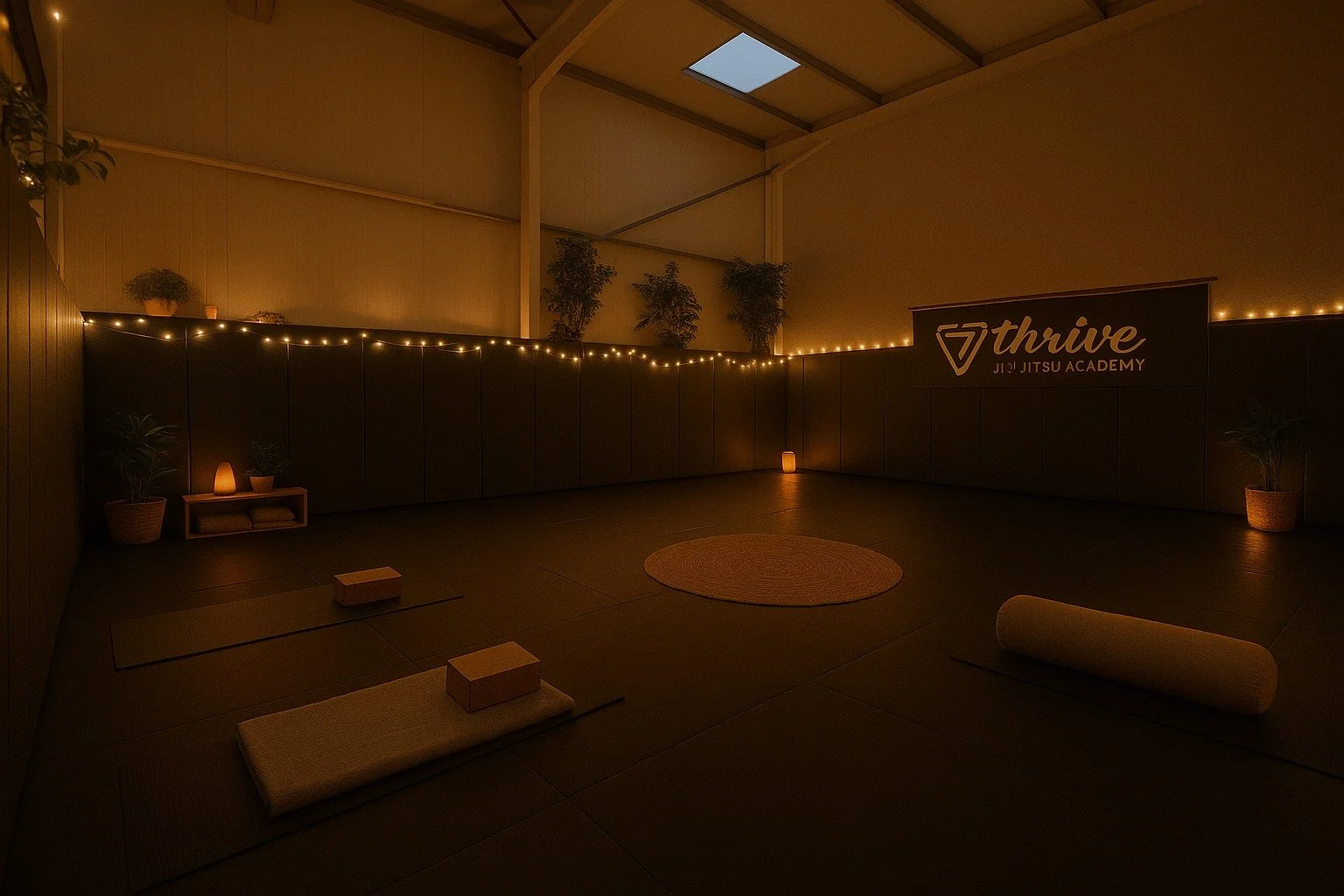When you step into Sunday Stretch at Thrive Jiu-Jitsu, the first thing you’ll notice isn’t the music or the mats—it’s the light.
Soft, gentle, warm. It instantly tells your body, you can slow down now.
Lighting might seem like a small detail, but in yoga it shapes how we feel, move, and connect. The soft glow we use in Sunday Stretch sessions is a conscious choice—a way to help you unwind, tune in, and restore balance after a full week of training, work, or life.
⸻
1. Soft Light Helps the Nervous System downregulate.
Jiu-jitsu, work, workouts, and the general buzz of life keep us in a state of alertness. Harsh lighting only adds to that stimulation.
Soft lighting does the opposite—it tells your body it’s safe to slow down.
Under warm, low light, the parasympathetic nervous system (the “rest and digest” state) activates. Muscles release tension, breathing deepens, and the whole system starts to recalibrate.
It’s the difference between surviving the week and recovering from it.
⸻
2. It Encourages Interoception.
The soft lighting in class isn’t just for atmosphere—it’s an invitation.
When the light dims, your focus naturally shifts from the room around you to the space within you. You get a better understanding of what is happening inside your body. You stop comparing yourself to the person next to you and start listening to your own breath, your own edges, your own rhythm.
It’s where the real work of yoga happens—quietly, internally, and intentionally. When interoception is strong, you can tune into the body’s subtle signals, tension, comfort, fatigue, calm, stress or ease, which are quite often lost in the noise of life.
⸻
3. It Creates Safety and Comfort
After a week of being “on”—whether on the mats, at work, or in life—soft lighting offers something rare: a sense of safety.
It’s grounding, private, and calming. There’s no spotlight, no pressure, no need to perform.
That sense of comfort allows your body to release more deeply into each pose and your mind to soften into presence.
It’s a physical and psychological exhale.
⸻
4. It Sets the Tone for Recovery
Every element of Sunday Stretch is designed to help you reset—from the pacing of the flow to the mellow playlists to the lighting.
Soft light complements this by creating a relaxed, restorative atmosphere.
Whether you’re easing tight hips from jiu-jitsu, calming an overworked mind, or simply wanting to feel more human again, the low glow helps your body and mind find their way back to balance.
⸻
5. It Eases the Transition Back to Stillness
The way we end practice matters just as much as how we begin it.
In the final moments of class—during Savasana—the soft lighting supports your nervous system to truly rest. It creates a gentle bridge between the focused stillness on the mat and the world waiting outside.
You leave not just stretched, but restored.
⸻
In Short
Soft lighting isn’t decoration—it’s part of the practice.
It helps you downshift, find calm, and reconnect to yourself.
At Sunday Stretch Sessions at Thrive Jiu-Jitsu, we use soft light intentionally to create a space that feels safe, soothing, and deeply restorative—perfect for ending the week on a grounded note and starting the next one with clarity and calm.


